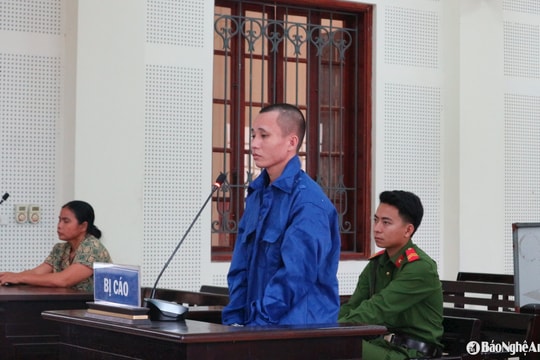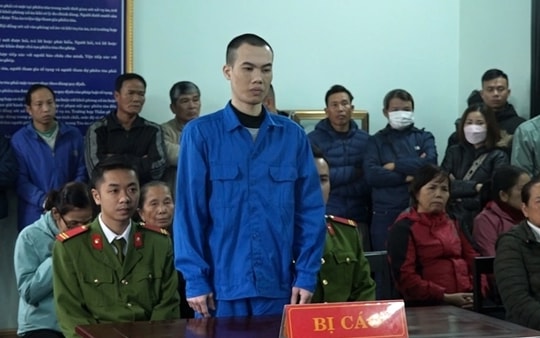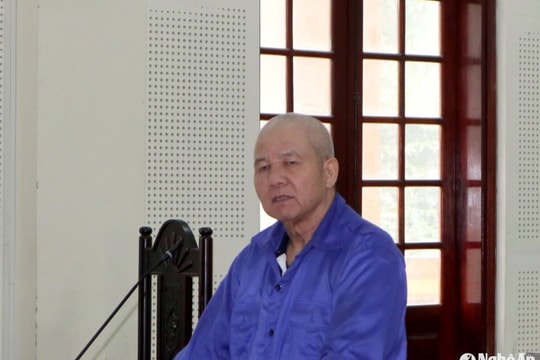Conflict while building a house, brother-in-law killed brother-in-law
Just because of a conflict while building a house and simmering suspicions, Nguyen Van Sy killed his brother. The trial of the murder case that caused a stir in public opinion in Nghe An not only left a 19-year prison sentence, but also a long-lasting torment between two blood-related women.
Beating a rowing boat man to death over a dispute over house construction
One day in mid-June, the weather was hot, but the courtroom No. 1 of the People's Court of Nghe An province was crowded with people. They filled the long rows of benches to watch the murder trial that had caused a stir in public opinion. Because the defendant and the victim were not strangers but had a sibling relationship. Among the large group of people attending the trial, the image of two biological sisters Nguyen Thi L. and Nguyen Thi B. quietly passing each other made many people think.
Ms. L. is the wife of the victim in the murder case committed by Nguyen Van Sy (41 years old), residing in Minh Thanh commune, Yen Thanh district. B. is Sy's wife. After getting married, the two sisters each lived in different places. Among them, Ms. L. and her husband, Mr. Nguyen KT (born in 1977), live in Bai Son commune, Do Luong district.
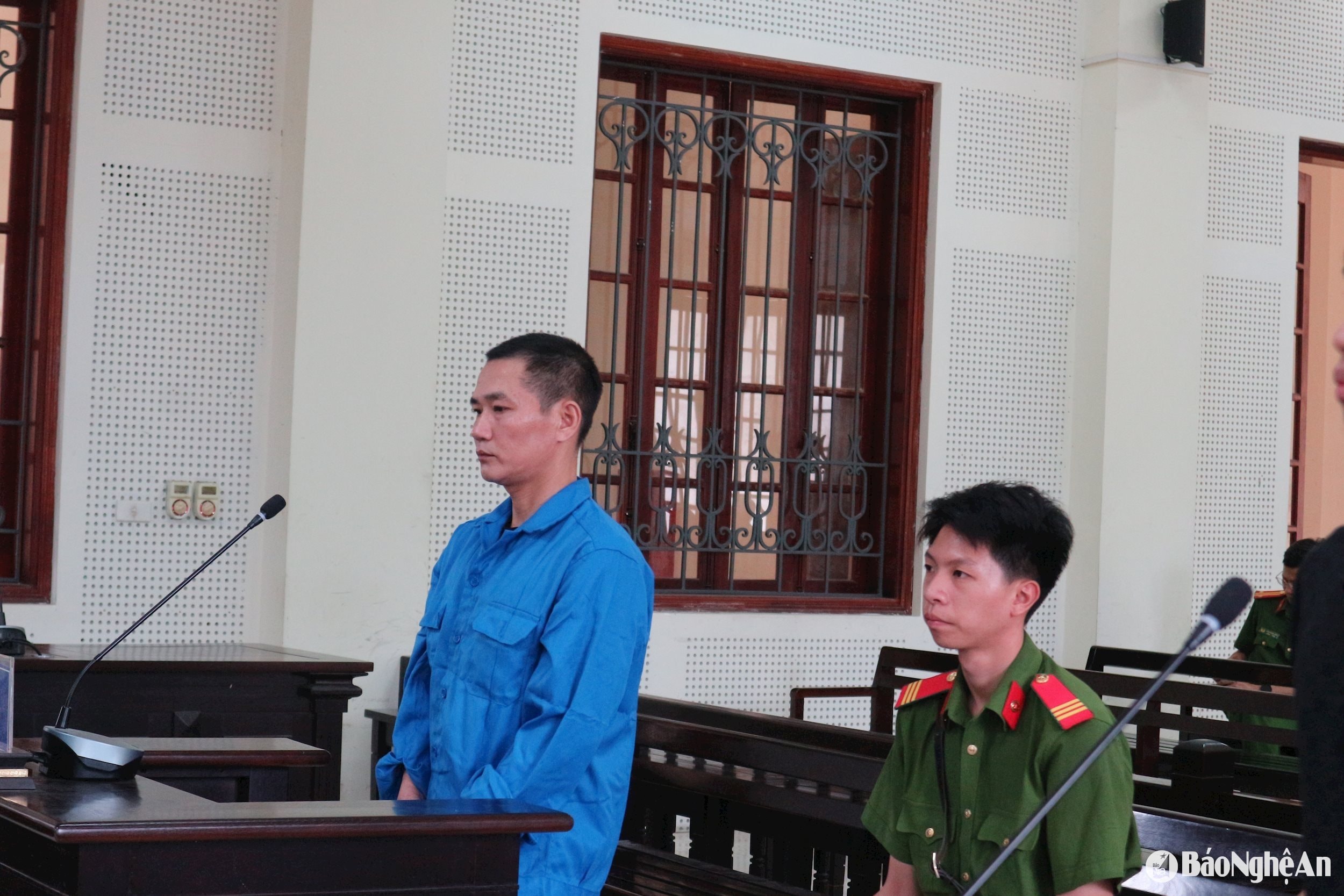
However, the two sides still kept in touch and talked to each other. Everything went smoothly until the younger sister, Ms. B.'s family, built a new house. Among many construction workers, Sy and his wife decided to hire the carpenter to do the wooden door project.
From around November 2024, Mr. T. came to do carpentry work to make wooden doors for my family. At first, Mr. T. worked regularly, but then he worked one day and took one day off. Because Tet was approaching, Sy reminded him that he would not be able to meet the deadline, but Mr. T. did not listen.
Besides, during the process of coming to work, Sy saw Mr. T. talking, laughing, and having fun with his wife many times, so he was upset and suspected that Mr. T. had feelings for his wife even though he did not say it.
On the morning of January 11, 2025, Mr. T. came to Sy's house to do carpentry as usual. Seeing Mr. T. sitting drinking water without working, Sy said: "Get up and go to work or it will be noon." "Whether you work or not is up to me," T. replied.
In the afternoon, Sy watched Mr. T. work and saw that the door frame was crooked, so the homeowner reminded him to "do it right, it's crooked", and at the same time asked him to speed up the work. At this time, Mr. T. replied: "If you wanted it to be quick, why didn't you call someone else to do it first?"
Hearing that, Sy blamed, "I only called you to work on our side. If you work one day and rest the next, when will you be able to finish the door?" After that, the two sides argued with each other. T. used his hand to push Sy away and said, "I won't do it anymore."
As Mr. T. turned to leave, Sy hit him three times in the back of the head with a wooden stick. As a result, Mr. T. collapsed to the ground and died later due to a fractured skull, brain hemorrhage, and brain edema.
After beating the boatman, Sy went to his garden to drink weed killer but was discovered by his relatives and taken to the hospital. After learning of the victim’s death, Nguyen Van Sy turned himself in to the police and admitted his crime.
At the trial of Nguyen Van Sy for murder, the defendant expressed remorse. The defendant stated that he and the victim had a brotherly relationship and had never had any previous conflicts. However, due to frustration with the victim's slow progress in work, working days and days off, and in a fit of anger due to an argument, the defendant could not control his actions.
The defendant denied suspecting the victim of having an affair with his wife. Before, he had only speculated, but now he no longer suspected. Sy stated that after accidentally hitting the boatman, he was very scared. Therefore, he went to the backyard to drink weed killer but was fortunately saved. After a few days of treatment, he was discharged from the hospital and surrendered to the police.
Two women and the pain that cannot be named
Attending court as the legal representative of the victim, Ms. L. and her son wore white headscarves. This woman was a woman of few words, but her face showed signs of hardship, sadness, and fatigue.
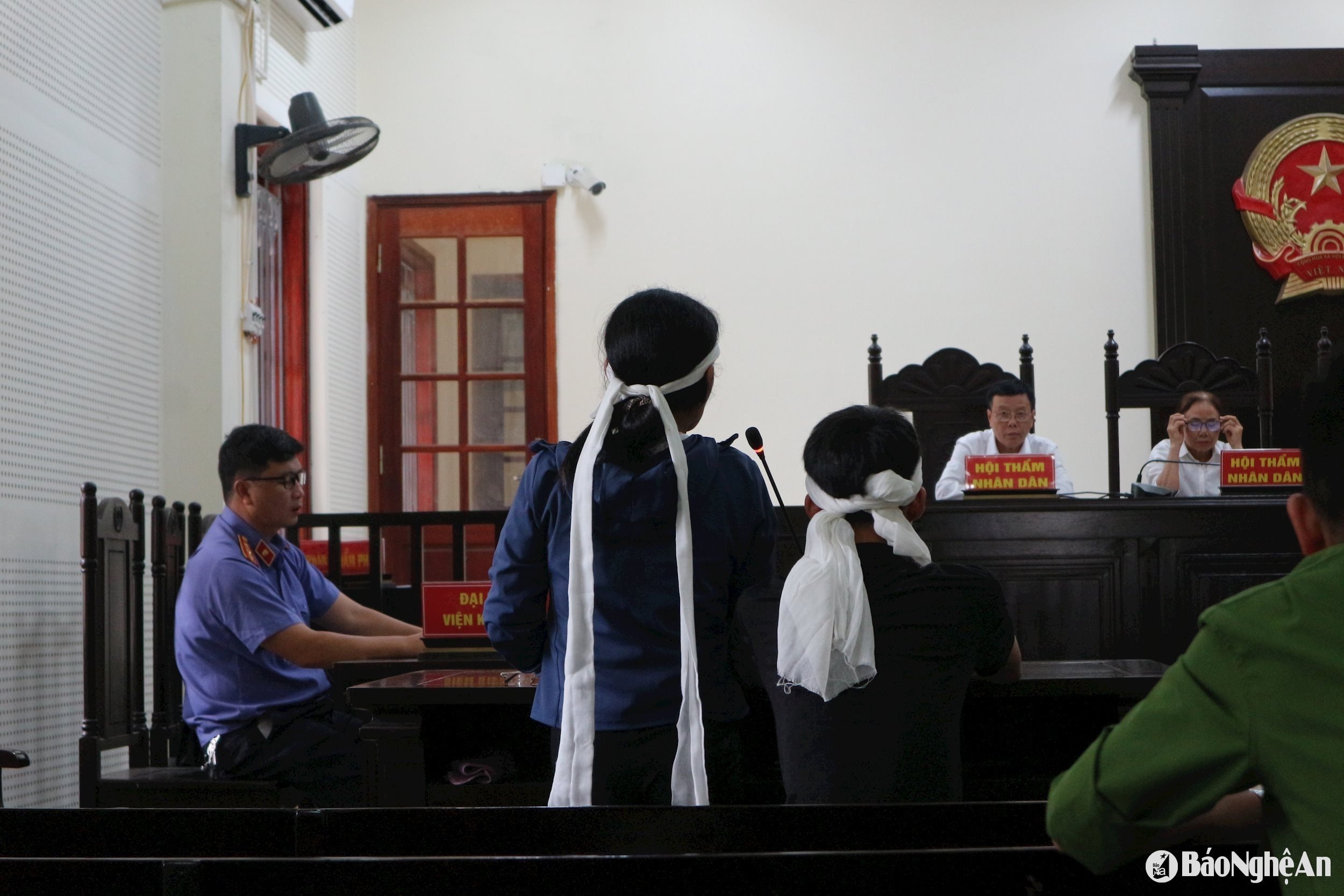
The case file shows that the victim’s family received 103 million VND in compensation from the defendant’s family and did not request anything more regarding the civil part. However, at the trial, this woman authorized her son to request the defendant to compensate more than 230 million VND in mental damages.
Hearing that, the defendant’s wife stood up and cautiously asked her sister’s family to “give me some credit.” The 41-year-old woman explained her family’s difficult circumstances, currently raising four children on her own, while the youngest was only four years old. The defendant’s wife also explained the reason for not having a stable job. “My children are still young, I still have to support them and send them to school, please consider giving me some credit,” the defendant’s wife mumbled.
At first, the victim's family did not agree to negotiate. They were determined to pay the compensation because the consequences the defendant caused to the family were so great that nothing could compensate. The trial dragged on because of the civil compensation negotiations between the two sides. When it seemed that the negotiations could not find a common voice, the victim's representative accepted the additional compensation of 200 million VND proposed by the defendant's family.
During the trial, the defendant's wife and the victim, although sitting close together, rarely looked at each other. Both faces showed sadness and fatigue. Since her husband's death, Ms. L. lost her spiritual support and the pillar of her family. In court, this woman said that her husband was a skilled carpenter and worked hard. Before that, there had been no conflict between her husband and the defendant. That day, she was at home when she heard the news. "At first, I just thought my husband had a work accident, but when I got to the hospital, I found out what had happened. After a short time of emergency care, he passed away," she choked up.
Suffering no less pain, the defendant's wife explained that she had gone to work early in the morning on the day of the incident and did not know or witness it. Afterwards, knowing that her husband's crime against her sister's family was too great, she managed to borrow more than 100 million VND to pay for hospital fees and funeral procedures. Meeting her sister in the courtroom, the defendant's wife apologized.
The defendant also repeated the words “sorry” many times during the trial. The defendant apologized to the victim’s family and hoped to receive their forgiveness. The defendant promised to reform himself to soon return to rebuild his life and make up for the emotional damage to his family.
The panel of judges determined that the defendant’s actions were dangerous to society, and that he had committed murder, so he should be severely punished. However, mitigating circumstances for the defendant should also be considered, such as his honest confession, remorse, and his influence on the family to partially compensate the victim’s family for their losses. Considering the case as a whole, the panel sentenced defendant Nguyen Van Sy to 19 years in prison. Regarding the civil aspect, the court ordered the defendant to pay an additional 200 million VND in compensation to the victim’s family.
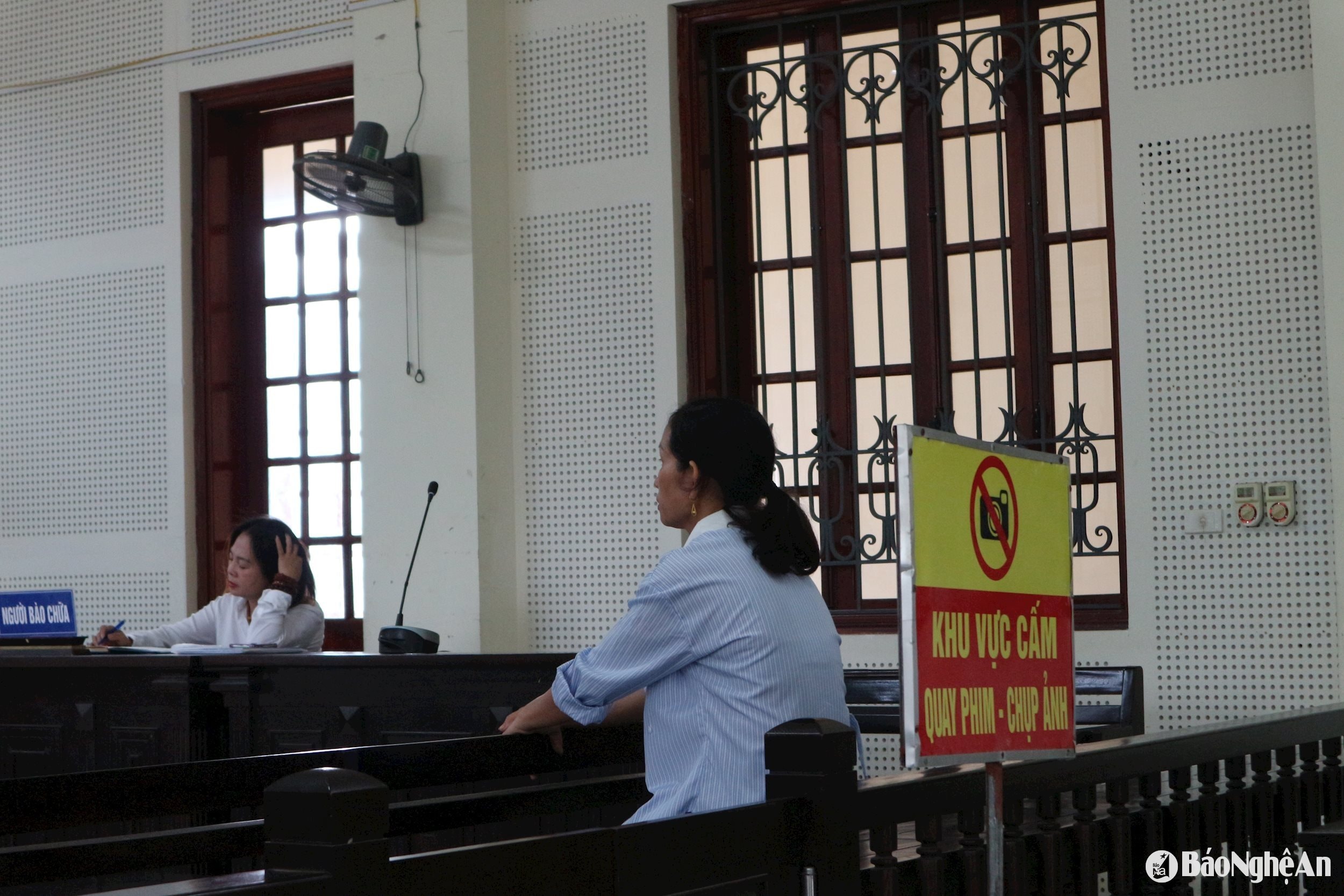
The trial ended late in the afternoon. The crowd quietly left the courtroom, each carrying heavy thoughts. In the midst of that crowd, two women who used to be close sisters passed each other without a word, each going their separate ways. After all, there were only silences, wounds that did not heal easily. If only Nguyen Van Sy had known to stop before his anger that day, then a life would not have been lost, two families would have been broken, and an apology would not have been too late.

